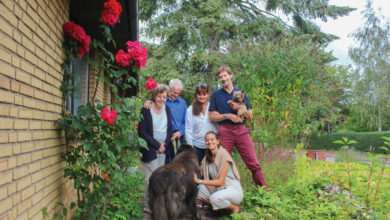Bruce McArthur case can happen in our community…
Now that convicted serial killer Bruce McArthur is behind bars, Toronto’s LGBTQ2 community is trying to move on. This community like the rest of our city is hurting and grieving from this gruesome series of killings. The LGBTQ2 community has been providing trauma-related services to the family and friends of the victims. This trauma has not only affected the gay community, but the rest of Toronto has felt the pain and suffering and pain.
In the past, it was difficult for many families when someone came out, and in many cases, there was rejection, or someone was ostracized by their families of origin, the previous communities, the church, and other faith communities put up walls which forced many people to go underground. The danger with this, more so in the past, was that many relationships went underground, risks were taken, and things like this spree of killings by Bruce McArthur occurred. Acceptance is much more open and encouraged to be out in the open these days, which is much safer in my opinion.
As the McArthur case unfolds, the public will encounter lots of information about sexual practices that may be foreign and perhaps, even upsetting. At the same time, the mainstream media will do the public a great disservice if it focuses on the sex acts without also informing the public that people from all walks of life enjoy fetish sex, feel safe within fetish sex communities, and are well informed with overreaching principles of consent. It is not that one man engaged in violent play with another during sex, but that one man engaged in a level of play with another during sex that exceeded what had been agreed upon by both parties.
More information and education sharing needs to take place within our everyday discussions.
It is better to bring forward open discussion about relationships and not keep them in the backrooms. Yes, people have kinky sex and statistics show a large number do. Whatever we learn from the McArthur trial, we must at least come away with the understanding that framing kinky sex within tropes of violent crime, indeed murderous crime, is unhelpful at best and victim blaming at worst.
Now that there is some sort of closure to this case, the one question that keeps coming up is:
Did the police do enough?
For years, members of Toronto’s gay community warned that there was a serial killer on the loose, that vulnerable men were going missing and that the streets were not safe. They were right. Now, with the trial over, advocates want to put the focus on why so many died before police cracked the case. Some have argued that the police response was slowed by homophobia and racism, that the force might have acted quicker if different men had disappeared.
People are still asking questions and we should, as this can happen in any community. The dialogue should continue to be open and we should be free to express what we feel and hope that there are safety channels that we can all lean on for support and help, if need be. Some folks are calling for an independent review of the investigation that may shed some light on whether systemic bias played a role in how the disappearances were handled.
Would the police have taken more and swifter action if McArthur’s victims had not been gay or people of colour, homeless or addicted to drugs?
In order for the broader community to gain any real closure in this case, these are the questions we need answered.
These questions should be asked by all of us because the system needs to be held up to scrutiny and accountability with checks and balances. The main inquiry now will be aimed at the police.
Toronto police have initiated an internal investigation into the McArthur case and an external review will also be conducted by Justice Gloria Epstein, which will look into missing persons investigations by Toronto police.
We don’t want the police to respond to our communities differently, especially with delays when requests are made by the public about missing people or other crimes. The police have a very difficult job to do and they perform it well, but continuous dialogue in all the communities needs to continue with accountability with checks and balances.









Redes Sociais - Comentários